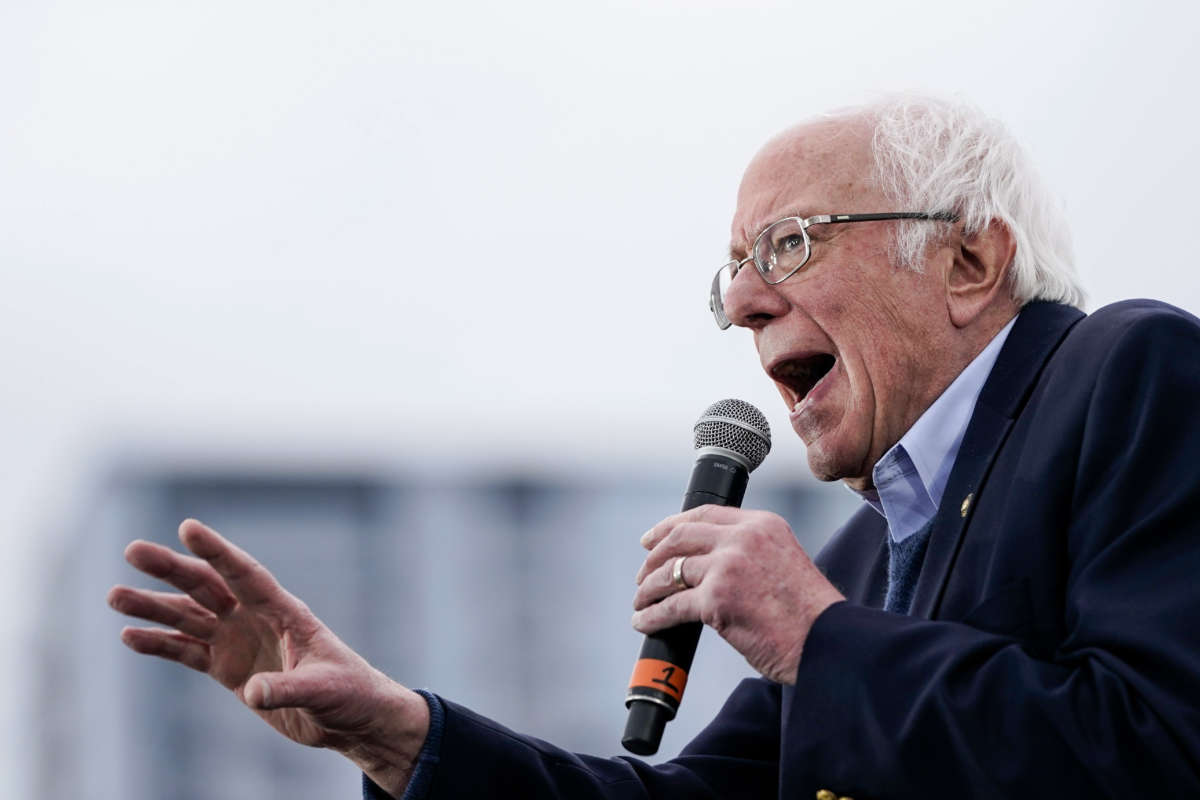Sen. Bernie Sanders (I-Vermont) called for medical debt to be abolished on Monday in response to news that the country’s three largest credit agencies will be removing paid-off medical debt from credit reports.
Experian, Equifax and TransUnion announced last week that credit reports will no longer include medical debt that went to collections after it’s been paid off. This accounts for almost 70 percent of medical debt on credit reports, and will eliminate billions of dollars in recorded debts. The agencies are also extending the grace period before medical debt appears on credit reports from six months to one year.
Sanders praised the move, but said that it doesn’t go far enough. “‘Medical debt’ and ‘Medical bankruptcy’ are two phrases that should not exist in the United States of America,” Sanders wrote on Twitter. “Removing 70 percent of past-due medical debt from credit reports is a step in the right direction, and much more needs to be done. We must cancel all medical debt.”
Earlier this week, Sanders said that he’s planning to reintroduce legislation to establish Medicare for All as millions of people are set to lose Medicaid coverage under a privatization scheme that the Biden administration is implementing. Medicare for All would eliminate most medical payments, greatly reducing if not eliminating widespread medical debt issues.
Medical bankruptcy is a uniquely American problem. In other wealthy countries – all of them with universal health care – medical bankruptcy virtually doesn’t exist. And yet, tens of millions of people in the U.S. struggle with medical debt; about half of the country’s adults carry medical debt (though estimates on this vary, and some research has found only about 10 percent of adults owe medical debt).
Adults are putting off needed medical care or skipping prescriptions because of the costs associated, including people with insurance coverage who cannot afford the co-pays and coinsurance. Though it comes at the expense of people’s health, such behavior is understandable given that millions of people in the U.S. are pushed into poverty by these out-of-pocket medical expenses.
In his last presidential run, Sanders campaigned on eliminating medical debt and placing strict guidelines on how medical debt could be enforced.
“500,000 Americans will go bankrupt this year from medical bills. They didn’t go to Las Vegas and blow their money at a casino. Their crime was that they got sick,” he said in 2019. “How barbaric is a system that says, ‘I’m going to destroy your family’s finances because you had cancer’?”
At the time, it was estimated that Americans hold about $81 billion in medical debt, according to a 2016 study. A more recent study from last year finds that Americans actually owe about $140 billion in medical debt, which has become the largest source of debt in collections in the country in recent years. That study did not include data from the pandemic, which may have caused that figure to balloon even more.
Sanders has also advocated for all student debt to be eliminated. Americans collectively owe nearly $1.9 trillion in student debt, according to the Student Debt Crisis Center, a record-high amount that economists say is seriously weighing down the economy.
Our most important fundraising appeal of the year
December is the most critical time of year for Truthout, because our nonprofit news is funded almost entirely by individual donations from readers like you. So before you navigate away, we ask that you take just a second to support Truthout with a tax-deductible donation.
This year is a little different. We are up against a far-reaching, wide-scale attack on press freedom coming from the Trump administration. 2025 was a year of frightening censorship, news industry corporate consolidation, and worsening financial conditions for progressive nonprofits across the board.
We can only resist Trump’s agenda by cultivating a strong base of support. The right-wing mediasphere is funded comfortably by billionaire owners and venture capitalist philanthropists. At Truthout, we have you.
We’ve set an ambitious target for our year-end campaign — a goal of $250,000 to keep up our fight against authoritarianism in 2026. Please take a meaningful action in this fight: make a one-time or monthly donation to Truthout before December 31. If you have the means, please dig deep.
